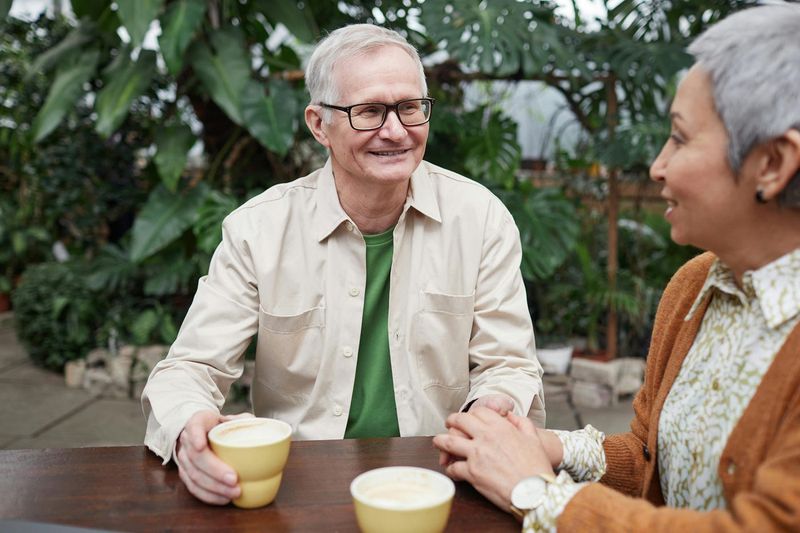10 Fake-Nice Behaviors That Hide Selfish Motives And 5 Real Acts of Kindness That Matter
In a world where gestures can be both genuine and misleading, distinguishing between the two is crucial. This blog post explores the subtle yet significant difference between actions that are outwardly kind but inwardly self-serving and those that are rooted in sincerity and compassion.
While some behaviors appear nice on the surface, they may mask selfish motives. Conversely, true kindness is an expression of genuine concern for others, untainted by personal gain.
This post highlights ten behaviors that may seem pleasant but hide ulterior motives and contrasts them with five authentic acts of kindness that truly matter.
1. Over-giving with strings attached

Over-giving often masquerades as generosity, but it can come with hidden expectations. When someone gives excessively, it might not be out of genuine kindness but rather a desire for something in return. This kind of giving creates an unspoken contract, leaving the recipient feeling obligated.
Have you ever received a gift, only to feel pressured to reciprocate? That’s the essence of over-giving with strings attached. It’s less about the joy of giving and more about maintaining control or earning favor.
True generosity doesn’t count the cost or keep a tally. It gives freely, without the expectation of something in return.
2. Constant compliments that feel too polished

Compliments are lovely, but when they feel rehearsed or too perfect, they might serve a hidden agenda. A cascade of polished praise can be a tactic to manipulate or to gain favor rather than true admiration. Such compliments can feel hollow, lacking the warmth of sincerity.
When compliments are used as a tool for personal gain, they lose their charm and become suspect. The receiver might doubt the authenticity, questioning if there’s an ulterior motive.
Genuine compliments come straight from the heart, unrefined and earnest. They don’t just flatter—they affirm and uplift, creating genuine connections.
3. Offering help to stay in control

Offering help can sometimes be more about control than care. When assistance is provided to maintain influence or power, it is no longer a selfless act. Such offers can feel like strings are attached, leading to a sense of obligation or indebtedness.
It’s a subtle way to exert dominance, ensuring the helper remains indispensable. The recipient might feel grateful yet partially constrained by the assistance.
Real help empowers and liberates, not entangles. It allows the recipient to flourish without feeling tethered to the giver. True assistance is given freely, with the recipient’s best interests at heart.
4. Playing the victim to gain sympathy

Playing the victim is a manipulative tactic that seeks sympathy rather than resolution. By portraying oneself as consistently wronged, the individual shifts focus onto themselves, diverting attention from real issues.
This behavior can exploit the kindness of others, who may feel compelled to offer support. It risks creating one-sided relationships, where empathy is drained without reciprocity.
Genuine vulnerability fosters connection, but playing the victim breeds imbalance. Healthy relationships involve mutual support and understanding, not continuous cycles of seeking sympathy without change.
5. Acting generous—then keeping a tally

Generosity turns sour when it’s conditional or recorded for future leverage. When someone acts generously, only to keep track of their deeds, it signals a transactional mindset. This kind of giving isn’t about kindness; it’s about accumulating credit.
The recipient might sense the underlying expectation, knowing that the giver sees their kindness as a scorecard. It breeds discomfort, as the gesture feels less about giving and more about maintaining an upper hand.
True generosity is given without strings or scorekeeping. It enriches both the giver and receiver through its purity.
6. Pretending to agree just to avoid conflict

Agreement can be a mask for avoiding conflict rather than genuine consensus. When someone pretends to agree to keep peace, it may reflect fear of confrontation or a desire to blend in. This behavior avoids genuine dialogue and understanding.
Feigning agreement stifles authentic relationships, as it prevents true perspectives from being shared. It can lead to resentment, as unvoiced opinions and feelings fester.
Authentic relationships thrive on honesty and open communication. They allow for different opinions and respectful disagreements, leading to growth and deeper connections.
7. Sharing “concern” that’s actually criticism

When concern is a guise for criticism, it erodes trust and genuine care. Phrasing criticism as concern can manipulate emotions, making the recipient feel judged rather than supported. It’s a passive-aggressive tactic that can damage relationships.
The recipient of such ‘concern’ may feel scrutinized, realizing the underlying criticism beneath the facade. This approach can create tension, as it lacks the honesty that fosters understanding.
True concern comes with empathy and support, not hidden criticism. It aims to uplift, offering help without judgment or ulterior motives.
8. Making “helpful” suggestions you didn’t ask for

Unsolicited advice often masquerades as helpfulness but can carry condescension or self-interest. Offering advice without being asked can imply a lack of trust in the other’s ability to handle their situation.
Such ‘helpfulness’ can overshadow the other person’s autonomy, creating a dynamic where the giver assumes superiority. It can lead to frustration, as the receiver feels undermined or controlled.
True helpfulness respects boundaries and offers support when sought. It empowers the recipient, fostering a sense of trust and cooperation rather than dictation.
9. Apologizing to end the conversation—not to repair

Apologies can be more about escaping discomfort than mending relationships. When someone apologizes to end a conversation without addressing the underlying issue, it signals avoidance.
The recipient recognizes the hollow nature of the apology, feeling unresolved and perhaps even more distanced. Such apologies can hinder genuine reconciliation, as they focus on personal relief rather than mutual understanding.
A sincere apology seeks to mend and understand, fostering healing and growth. It acknowledges the impact of one’s actions and commits to positive change.
10. Giving advice to feel superior—not supportive

Advice can be a tool for superiority rather than support. When given to elevate the advisor rather than aid the recipient, it loses its value. Such advice aims to showcase the giver’s knowledge, often at the expense of the other’s confidence.
The receiver may feel belittled, sensing the condescending tone masked as guidance. This dynamic breeds mistrust, as the advice seems self-serving rather than genuinely helpful.
Supportive advice empowers, focusing on the recipient’s needs and growth. It respects their journey and offers insights with humility and care.
Here’s how you can recognize real genuine acts of kindness:
1. Listening with genuine presence

Listening deeply is a profound act of kindness, offering your full attention to another. It requires putting aside distractions and truly hearing what the other person is saying, both in words and emotions.
This level of presence creates a space where the speaker feels valued and understood. It fosters genuine connections, as it demonstrates respect and empathy.
Real listening isn’t about responding or offering solutions; it’s about being there, fully and compassionately. It’s a gift that strengthens bonds and nurtures trust, making the other person feel heard and appreciated.
2. Encouraging without overshadowing

Encouragement that uplifts without overshadowing is a true act of kindness. It focuses on affirming the other’s strengths and potential, rather than drawing attention to oneself.
Such encouragement is like watering a plant—nurturing growth without overwhelming. It respects the individual’s journey, offering support that enhances rather than eclipses their own efforts.
True encouragement celebrates the other’s achievements with humility and joy, fostering an environment where they feel empowered and inspired to flourish. It strengthens their confidence and independence, valuing their unique path.
3. Doing small things without being asked

Acts of kindness often manifest in small deeds done without prompting. These gestures, though seemingly minor, carry significant weight as they are driven by genuine care and attentiveness.
Whether it’s helping with a task or offering a smile, these acts reflect a mindful awareness of others’ needs. They don’t seek recognition or reward, operating quietly in the background.
Such actions create ripples of goodwill, contributing to a sense of community and connection. They remind us that kindness doesn’t always require grand gestures—sometimes, it’s the smallest acts that have the most profound impact.
4. Holding space without trying to fix

Holding space is a tender act of kindness, allowing someone to express their emotions without judgment or interference. It’s about being present and offering a safe haven for them to be themselves.
This kindness recognizes that not all problems need immediate solutions. Sometimes, people just need to be heard, without advice or intervention.
By holding space, you offer comfort and acceptance, providing a foundation for healing and reflection. It’s a gentle reminder that simply being there can be more powerful than fixing, creating a bond built on trust and empathy.
5. Being honest in a way that still feels safe

Honesty, when delivered with care, is a remarkable kindness. It involves sharing truths in a manner that respects the other person’s feelings and dignity. Rather than bluntness, it’s about crafting communication that enlightens and encourages growth.
This kindness balances truth with tact, ensuring that honesty strengthens rather than harms. It fosters trust, as it demonstrates respect for the other person’s ability to understand and handle the truth.
Sharing truths in a safe way nurtures relationships, inviting authenticity and understanding. It’s an empowering act, guiding others with insight and compassion.







